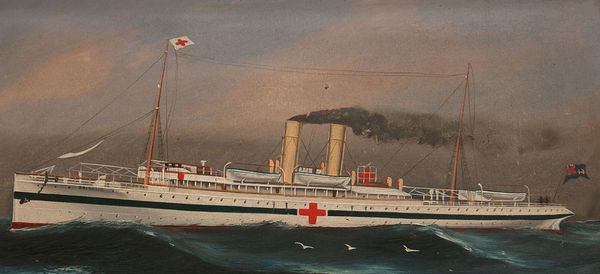Difference between revisions of "HMHS Brighton"
From Our Contribution
| Line 69: | Line 69: | ||
*[[Matthew Harwood]] | *[[Matthew Harwood]] | ||
| − | ===5 June 1917=== | + | ===Calais to England 5 June 1917=== |
*[[Thomas Albert Leslie Cheney]] | *[[Thomas Albert Leslie Cheney]] | ||
Revision as of 03:07, 2 July 2019
 courtesy en.wikipedia.org | |
| History | |
|---|---|
| Name | HMHS Brighton |
| Builder/Built | 1903 W Denny & Bros, Dumbarton |
| Type | steamship cross channel ferry (triple screw) |
| Displacement | 1,384 tons |
| Speed | 21 knots |
Contents
Remarks
Owned by London, Brighton and South Coast Railway before and after her WW1 service. Used on the Newhaven - Dieppe route.
In 1914, Brighton was requisitioned by the Royal Navy for use as a troopship. She was later used as a hospital ship. On 19 December 1914, she rescued the survivors of the naval trawler HMT Orianda, which had been sunk by a mine in the North Sea off Scarborough, Yorkshire. Brighton carried the American President Woodrow Wilson back to Dover after the signing of the Treaty of Versailles.
In 1930, Brighton was sold to Mr W E Guinness, who converted her to a private yacht named Roussalka.
Soldiers carried
France to England 11 June 1916
Calais, France to England 1 Aug 1916
Calais to England 29 August 1916
Calais to England 12 August 1916
- Ivor Trehane Birtwistle Post WW1 men